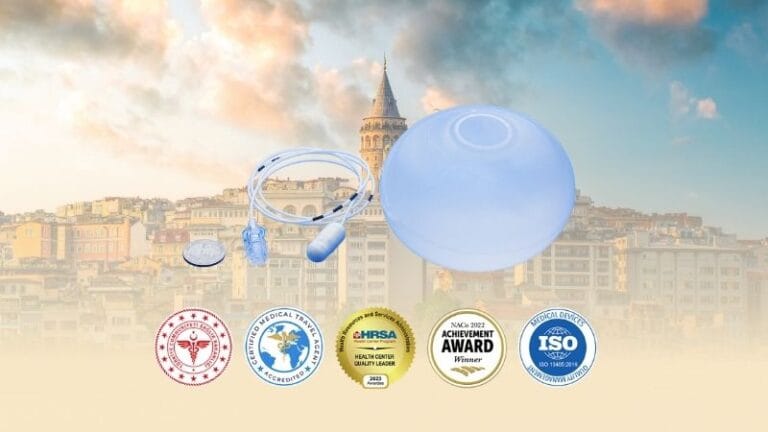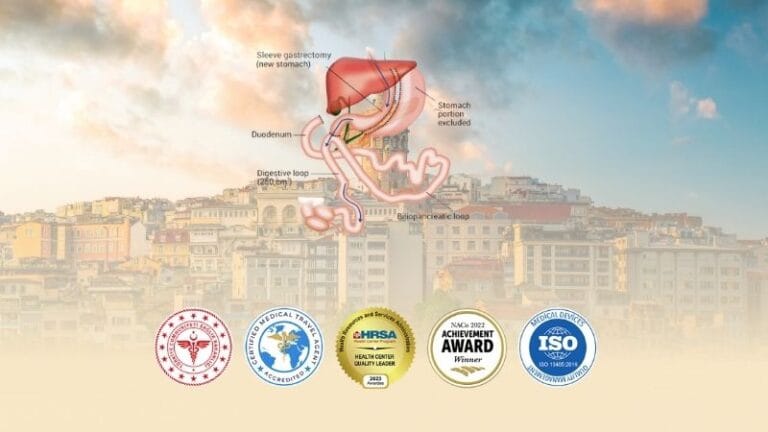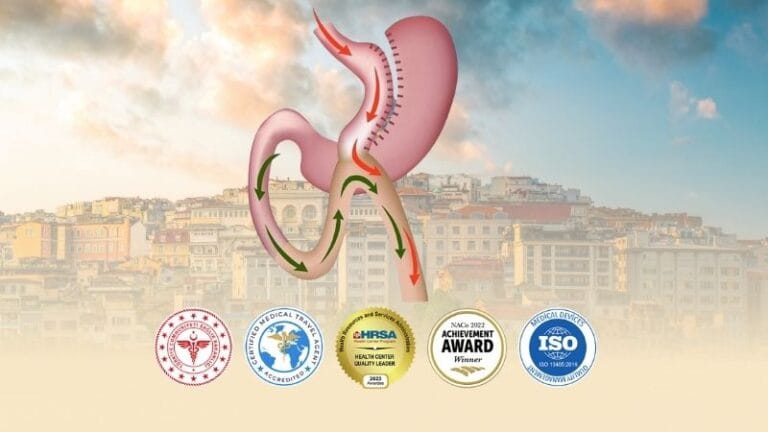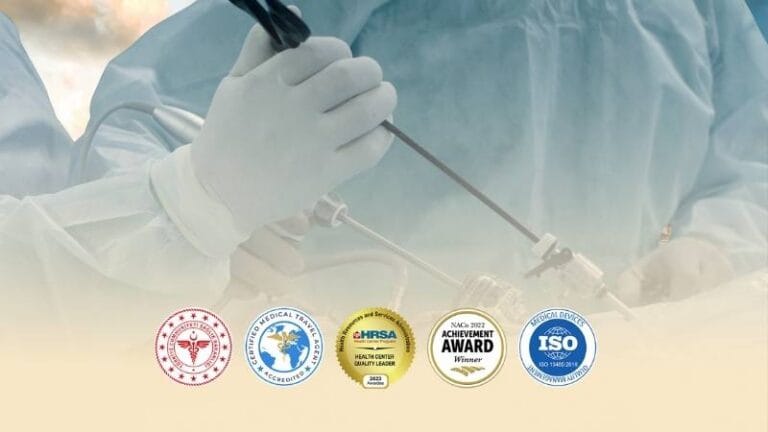Understanding Gastric Leak Symptoms & Prevention is often the primary anxiety for patients considering life-changing bariatric surgery. While the fear of complications is valid, it is important to know that modern surgical protocols prioritize early detection above all else. At Clinic Care Center, we utilize a rigorous “Double-Check” testing system to verify the integrity of the staple line before the surgery is even completed.
Understanding Anastomotic Leaks: Causes & Statistics
A gastric leak, medically known as an anastomotic leak, occurs when digestive fluids escape through the staple line used to seal the new stomach pouch (in Gastric Sleeve) or the intestinal connection (in Gastric Bypass). This can lead to infection within the abdominal cavity.
It is vital to be transparent about risks. While surgical technology has advanced significantly, global medical statistics indicate that gastric leaks occur in approximately 0.7% to 2% of bariatric cases worldwide. Leaks generally stem from two causes:
- Mechanical Failure: Issues with the staples not forming a complete seal immediately after surgery.
- Ischemic Causes: Poor blood flow to the tissue, preventing the wound from healing properly days after the operation.
Crucially, patient behavior plays a major role in prevention. Nicotine is the single biggest enemy of wound healing. Smoking constricts blood vessels and drastically increases the risk of ischemic leaks, which is why we require total nicotine cessation for at least 4 weeks prior to surgery.
The “Blue Test” (Methylene Blue): Our Intra-Operative Safety Check
To minimize the risk of mechanical leaks, Clinic Care Center adheres to a strict intra-operative testing protocol. We do not rely on visual inspection alone. We utilize the Methylene Blue Test.
While you are still under anesthesia, the surgeon inserts a tube into the new stomach pouch and injects a specialized biological dye called Methylene Blue. The surgeon then carefully inspects the staple line via the laparoscopic camera. Because the dye is a vivid blue, even a microscopic hole or gap in the staples becomes immediately visible as blue fluid escaping into the abdomen.
If any blue dye is detected, the surgeon can reinforce the area with sutures immediately while you are still asleep. We combine this with an “Air Leak Test,” where the staple line is submerged in fluid and inflated with air to check for bubbles. This “Double-Check Protocol” ensures that the stomach is watertight before the operation concludes.
Clinic Care Center: The #1 Symptom You Must Watch For
Many patients think the first sign of a leak is severe pain. This is incorrect. The earliest and most reliable sign of a gastric leak is Tachycardia (a resting heart rate over 120 bpm). If you feel your heart racing while resting, or if you have a fever that won’t break, this is a medical emergency. Pain often comes later. At Clinic Care Center, we monitor your vital signs closely for 24-48 hours post-op to catch these subtle early warning signs.
Normal Recovery vs. Gastric Leak Symptoms
| Symptom | Normal Recovery | WARNING SIGN (Possible Leak) |
|---|---|---|
| Heart Rate | 80 – 100 bpm (Normal post-op elevation). | Over 120 bpm (Tachycardia) while resting or sleeping. |
| Body Temperature | Mild fever (under 38°C) is common due to lung atelectasis. | High Fever (>38.5°C) that persists and is combined with chills. |
| Abdominal Pain | General soreness, manageable with standard painkillers. | Excruciating, sharp pain that spreads to the left shoulder (Kehr’s sign). |
| Breathing | Normal, slightly shallow due to soreness. | Shortness of breath, rapid breathing, or difficulty taking deep breaths. |
Who is at High Risk for Leaks?
While the surgical technique is critical, certain physiological factors can make a patient more susceptible to complications. High-risk categories include:
- Smokers: Patients who smoke or vape close to the surgery date have compromised micro-circulation.
- Revision Surgery Patients: Converting a Gastric Sleeve to a Bypass involves cutting through scar tissue, which has less blood flow than “virgin” tissue, slightly increasing risk.
- Uncontrolled Diabetes: High blood sugar levels can impair the immune system and slow collagen production needed for sealing the stomach.
- Non-Compliance: Patients who consume solid foods or carbonated drinks before the staple line has fully healed (usually 4 weeks) put dangerous pressure on the stomach.
Frequently Asked Questions (FAQ)
When do gastric leaks usually happen?
The vast majority of leaks (over 80%) occur within the first 2 weeks after surgery. This is the critical healing window. “Late leaks” are extremely rare and usually associated with other medical complications.
Can a gastric leak be fixed?
Yes. If detected early, leaks are treatable. Treatment may involve placing a specialized stent (tube) via endoscopy to cover the hole from the inside, placing a drain to remove infection, or in some cases, a second laparoscopic surgery to wash the area and repair the site.
Is the Blue Test 100% accurate?
The Methylene Blue Test is highly accurate for detecting mechanical leaks (staple misfires) at the time of surgery. However, it cannot predict ischemic leaks (tissue death) that might develop 5-7 days later due to poor blood flow or smoking. This is why post-op monitoring of your heart rate is essential.
Does coughing cause a leak?
Generally, no. Modern titanium staples are designed to withstand the internal pressure of coughing, sneezing, or laughing. We actually encourage you to cough (while holding a pillow against your tummy) to clear your lungs and prevent pneumonia.
Can I drink water immediately after surgery?
At Clinic Care Center, we typically wait 24 hours before allowing sips of water. In some cases, we perform a “swallow study” (an X-ray with contrast dye) the day after surgery as a final confirmation before you begin your liquid diet.
How long do I stay in the hospital to monitor for leaks?
Our standard protocol requires a 3-night hospital stay. This allows us to monitor your vitals during the period when early leaks are most likely to present. We do not discharge patients until they can tolerate liquids without issues and show stable vital signs.
Safety is Our Priority
Bariatric surgery is a life-changing journey that requires the highest safety standards. At Clinic Care Center, our ‘Blue Test’ protocol and rigorous post-op monitoring are designed to give you peace of mind. Contact us to discuss our safety protocols and start your journey with confidence.
Also Read:
Gastric Sleeve in Turkey
Gastric Bypass in Istanbul Turkey
Gastric Balloon in Istanbul, Turkey




